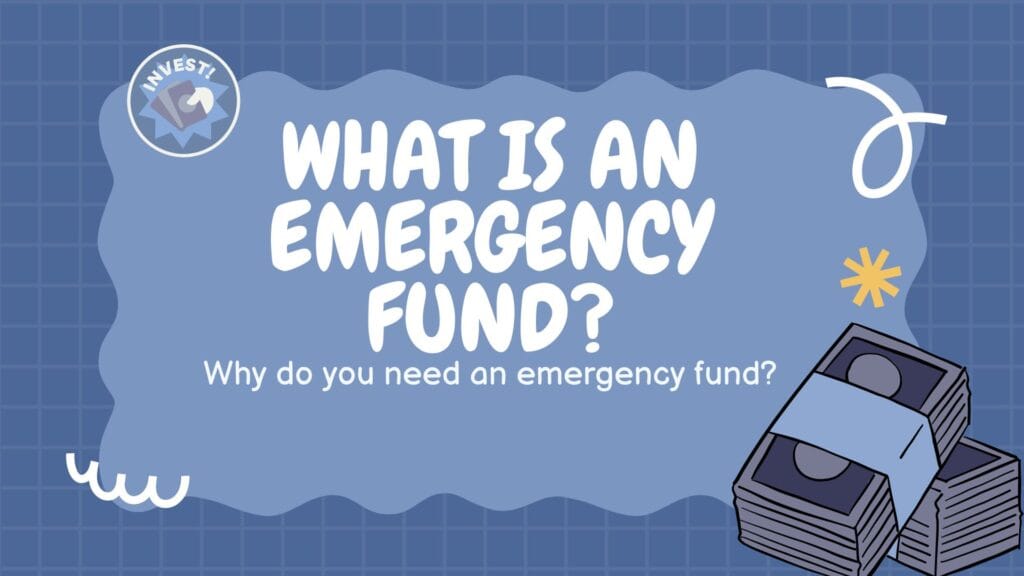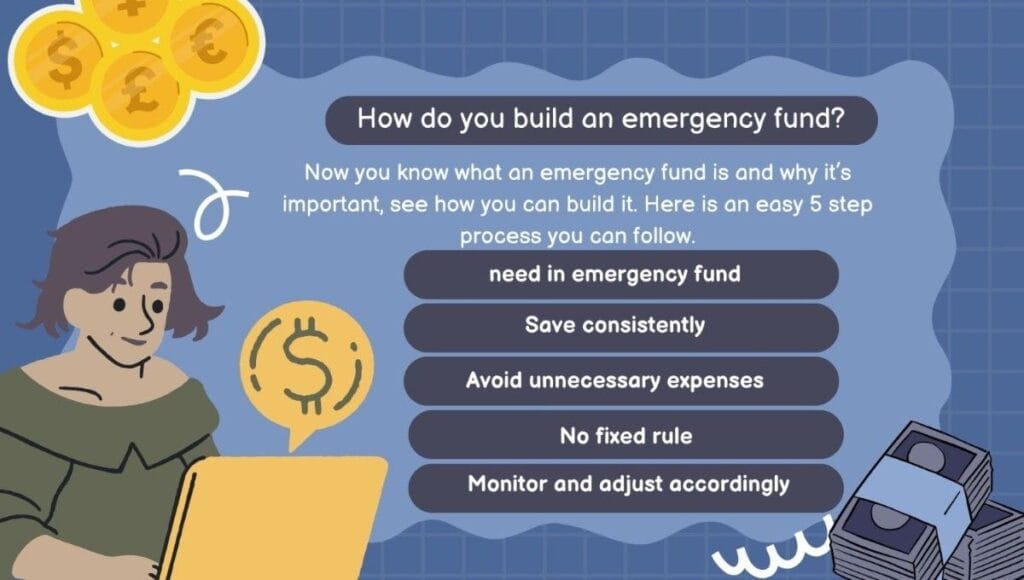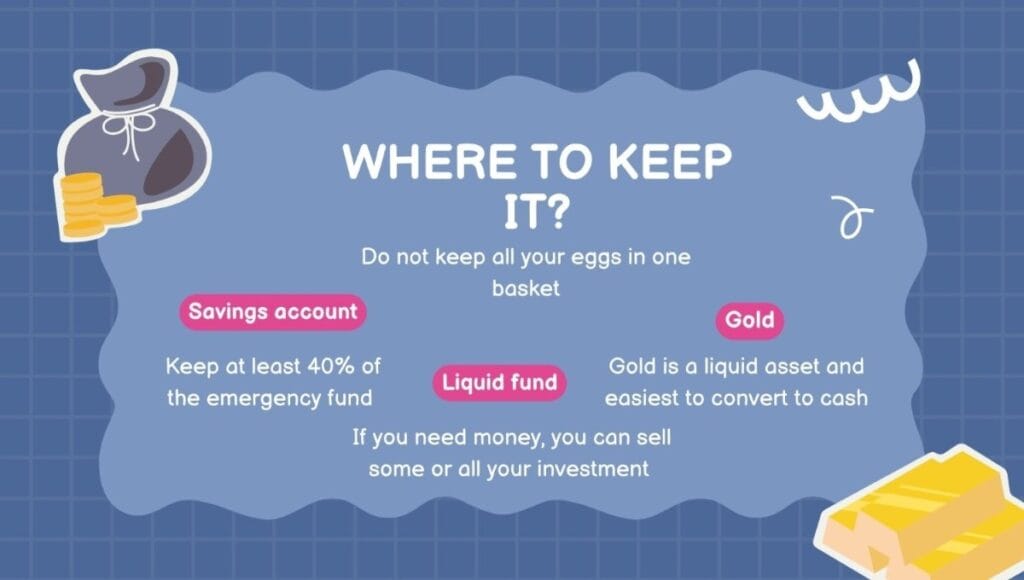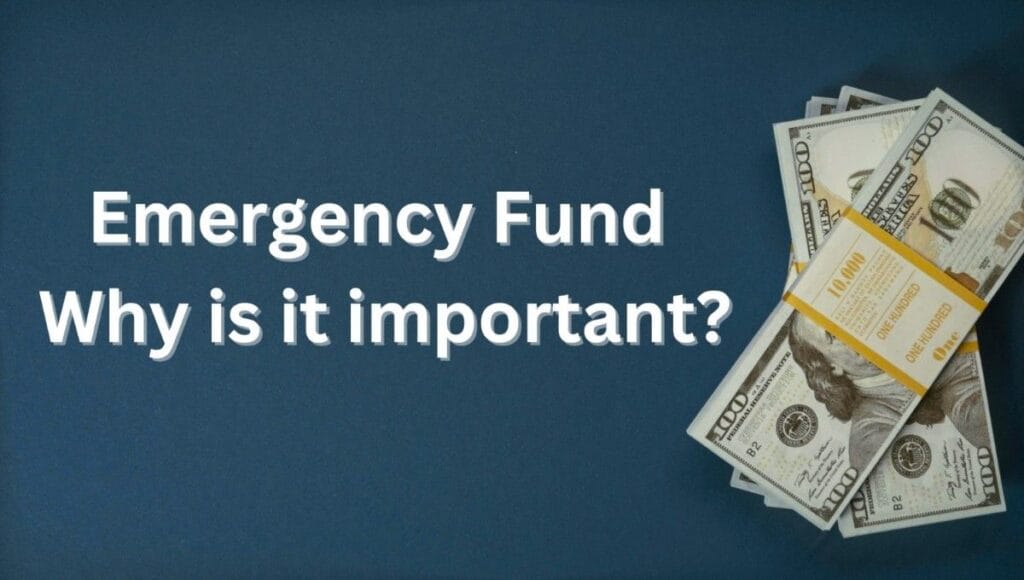Emergency Fund: Ok. So why does this keep happening to me? Last month my car broke down around the 25th. It was the end of the month. How was I supposed to bear the cost? Thankfully my friend Steve lent the money to cover the expenses. This month, I must go to the dentist urgently. I can’t bear the pain. On top of that, dental is not even covered in insurance. I cannot ask anyone else for money now. It’s embarrassing. Why does this keep happening to me? What can I do to solve this? If this is your thought of the day, we have a solution for you.
Life is not predictable, and we often find ourselves in unpleasant financial situations. With the current market it is difficult to rely on paycheck and God forbid if that’s delayed or you find yourself at the end of FIRE stick or have a health emergency, travel emergency or anything you have not thought of, how do you tackle it? How do you free yourself from the distress of not having enough to cover the unexpected. The solution is an emergency fund.
What is an Emergency Fund?

Emergency fund is a stash of money you build as a backup for rainy days. It’s a fund you use for emergencies like job loss, unplanned home repairs, medical emergencies and unanticipated travel. According to experts you should have 6 months of emergency fund in liquid assets.
Why do you need an emergency fund?
Having a cash reserve frees you from mental load. You are well equipped to tackle.
1. Unexpected emergencies: Dental or another medical emergency. Car breakdown/home repairs/wedding or another function.
2. Paycheck uncertainty: If you suffer a job loss, emergency fund keeps you going for few months till you look out a new income source..
3. Debt: Having a cash reserve saves you from making wrong financial decisions such as taking credit card debt or loan against assets.
Understand what constitutes emergency
Before you work on an emergency fund, understand what constitutes it. Emergency money should be used only in case of health crisis and unable to bear basic expenses. Rest all can be managed. Buying a new phone when the old one works is not an emergency. Home renovations or enrolling for swimming class is not an emergency.
Depending upon your financial situation classify for yourself what is an emergency.
How do you build an emergency fund?

Now you know what an emergency fund is and why it’s important, see how you can build it. Here is an easy 5 step process you can follow.
1. Understand how much you need in emergency fund
- How many members are there in your family? If you are a family of 4, then definitely you are going to need a substantial amount more than a person living alone.
- Do you have debt? Mortgage payment/Car/Credit Card/School Fees/ College fees?
- Rent
- Health obligations of any family member.
Basic rule is to have 6 months of expenses. So, all of this, groceries, rent, mortgage payments, education fees, medicines and utilities are your non-negotiable expenses and must form a part of the emergency fund. So, calculate this per month cost and save accordingly.
Consider this with a table below:
| Category | Monthly expense |
|---|---|
| Grocery | 500$ |
| Rent/Mortgage | 1500$ |
| Insurance (Health/Car/House) | 200$ |
| Utilities (Electricity/Gas) | 300$ |
| Transportation (Car/Subway pass) | 300$ |
| Education fees | 200$ |
| Medical bills/medicines | 200$ |
| Total | 3700$ |
| Emergency fund | 3700*6=22,200$ |
Now this is a rough estimate, adjust according to the actuals and calculate it for yourself. Remember these are only non-negotiable expenses.
2. Save consistently
Understand what emergency fund is built up consistently. There is hardly a person who has all the required savings in one go. So set up a plan ex. Next month I will put X amount of money towards the emergency.
If you do get a bonus, or some lumpsum amount comes your way and the emergency fund is not full, add to the same.
3. Avoid unnecessary expenses
Though streaming services, takeout’s, shopping and vacations may seem important, unless you have enough savings do not indulge into cravings.
4. No fixed rule
Remember there is no fixed rule for savings. Depending upon your financial situation at hand, and number of earning members you can consider 3-6 months or up to 1 year of fund as well.
5. Monitor and adjust accordingly
Once you have built your fund, keep monitoring it periodically.
Our lifestyle, liabilities or income profile keeps changing as we progress. It’s important we keep track of it and manage any unnecessary expenses. Keep rotating capital to the emergency fund as and when required.
Where to keep it?

“Do not keep all your eggs in one basket”. This is a golden rule and may be applied to various encounters in life. Just like investing, we don’t invest all money in 1 stock, here as well, we don’t keep all our savings in one place. Pick a mix of these.
1. Savings account
This should be your low-cost account and is easily accessible by debit card. Keep at least 40% of the emergency fund here so that you can access it in the blink of an eye.
2. Liquid fund
These are market linked funds with low return but lower risk as well. If you need money, you can sell some or all your investment here within a day or two.
3. Gold
Gold is a liquid asset and easiest to convert to cash. Though I do not prefer selling generational jewelry, having gold bonds or physical gold helps in most critical situations. Remember your currency was pegged to gold at the start of history.
What does not constitute an emergency fund?
1. Real estate
Real estate, i.e. an apartment or a piece of land or commercial property cannot be counted as an emergency fund because you cannot sell it quickly and cash it. The loan against any property also takes some time because of the valuation process and approvals. So, unless you are in major financial turmoil, mortgaging real estate or selling it would not be a wise financial decision.
2. Long term stocks
If you are invested in equities, and you think you can sell it off for emergencies, always be prepared for the worst. Money invested in equities is volatile in nature and depends purely on market conditions. So, if you need money in a not so good market you may have to incur losses.
3. Retirement Savings
Your future savings should not be accounted for in an emergency fund. If you use up all your future reserves in your working age, then at old age you won’t have the energy or resources.
Conclusion
An emergency fund is money you set aside for situations beyond human control. It’s like a piggy bank you can break if you need it. Evaluate how much you need and start building it consistently. Avoid futile expenses till you have built it. Keep monitoring it as we progress. Invest in low-cost funds like liquid funds, which generate your returns to beat inflation. Remember if you have what you need your mind is focused on what you want.
FAQ
Is 20000 enough as emergency fund?
Answer: This amount totally depends on your family size, number of earning members, long term assets you have and your job/business profiles. Though 20000$ is a good amount, one should be wary of extreme situations and try to have more in long term assets.
Is it a good idea to use emergency money for vacation?
Answer: No. As the name suggests it is for emergencies only. Vacation, though an enriching experience, is technically a liability and emergency funds should not be used for the same.
Shall I use emergency money for paying off debt?
Answer: This is critical and subjective. Are your mortgage payments or debt affecting your credit score? Do you see any other source of funds in case you need it? If yes, then yes. You can use some part of the emergency fund to pay off debt but not all.











